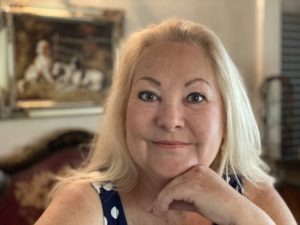One-on-one with…Gary Glazner
One wouldn’t think that a career and personal mission to bring comfort, enjoyment and affirmation to people with Alzheimer’s disease would begin in a florist shop. Indeed, it did. The memories of delivering bouquets to a nursing home inspired poet Gary Glazner into creating a program for people with memory loss to express themselves.
The Alzheimer Poetry Project (APP), of which Glazner is founder and executive director, has grown into an international outreach since its inception in 2003. He shares his experiences with Long-Term Living Managing Editor Sandra Hoban.
What is the mission of the APP?
In 2003, I received a $300 grant from New Mexico Literary Arts to develop a program that would support my goal of helping people with dementia realize that they still have value. By combining poetry with the arts, unique multimedia connections are made. Not only do the individuals with Alzheimer’s relate to poems and songs they remember from the past, the APP techniques used by the facilitator help them create verses.
Our goal is to tap into the imagination that still lives within the person with Alzheimer’s or dementia. Regardless of the stage of the disease process, we believe we can still touch the individual’s creative side, letting that person know that he or she is important, valued and loved.
Learning APP techniques allows caregivers and family members, to engage in a fun and meaningful way with the individual.
How is a facilitator taught to connect with a person with Alzheimer’s?
There are four basic techniques used in a poetry session, which can be used alone or in combination. The first technique is “call and response.” Say a line from a poem and have the group repeat the line back to you, similar to a minister prompting wedding vows.
Select a poem and read it aloud and then talk about it. Ask: “What did you like about the poem?” “Where did you hear it before?” Help the group members work together to make their own poem. Ask open-ended question and keep a list of the responses.
Incorporating props in the recitation makes a poem come alive, as it did when I brought a cooler filled with shaved ice to a session in Santa Fe. While I recited a poem, I made snowballs and passed them around the group. Some wanted to taste them. Eventually, snowballs were thrown back at me.
Finally, collaborate: Weave the arts into a selected poem, such as Poe’s “The Raven.” Have someone tap dance in the background. This gives a different beat and stimulates the listener.
How has national exposure to the APP helped you with your mission?
The Today Show, NPR’s All Things Considered and other national broadcasts have featured segments on APP. I’ve worked with a number of museums and other organizations to use art to inspire people with dementia to create their own poetry.
Alzheimer’s disease is a global affliction. In 2010, I introduced the APP in Germany—a project funded by the U.S. Embassy in Berlin. Since that time, the project has found roots in Poland, South Korea and Australia. Through workshops, many healthcare professionals and caregivers now are trained to reaffirm the value of people with Alzheimer’s disease.
If an organization was interested in holding APP sessions in its community, how would it go about doing so?
There are a number of effective ways to bring the APP into a community. My staff and I will travel to hold onsite training at a facility. We also offer online training and certification at www.alzpoetry.com.
My book, Dementia Arts: Celebrating Creativity in Elder Care, offers tips, training and ideas on how to engage your audience. Instructions, styled as recipe cards, offer step-by-step instructions along with sample poems to illustrate the process.
I attended one of your workshops this past fall. To fully appreciate the program, it should be experienced.
I invite your readers to visit the APP website (www.alzpoetry.com or www.dementiaarts.com to watch the poetry project in action. The videos posted are heartwarming and encouraging. It is amazing what stories people with Alzheimer’s disease can tell.
Watch Glazner connect to residents during a visit to Prospect Park in Brooklyn, N.Y.:
In a television interview. Glazner provides viewers with an overview of the Alzheimer’s Poetry Project:

Sandra Hoban was on I Advance Senior Care / Long-Term Living’s editorial staff for 17 years. She is one of the country’s longest-serving senior care journalists. Before joining Long-Term Living, she was a member of the promotions department at Advanstar Communications. In addition to her editorial experience, Sandi has served past roles in print and broadcast advertising as a traffic and talent coordinator.
Related Articles
Topics: Advocacy , Alzheimer's/Dementia , Articles , Leadership











